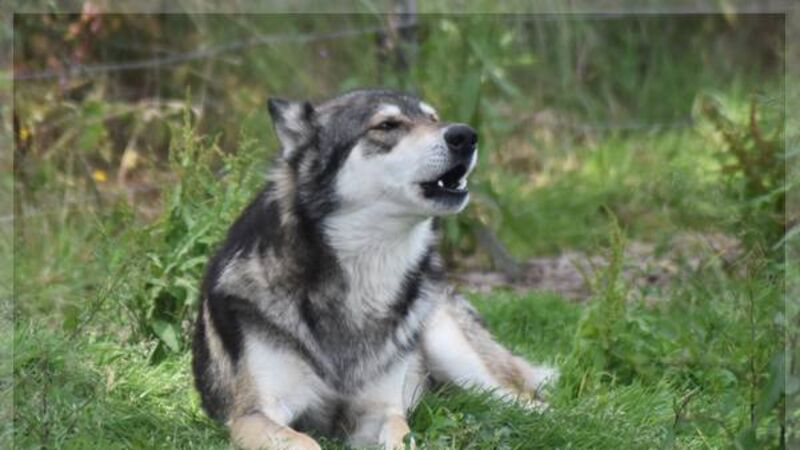Hybrid wolf escapes from Cork open farm which was previously criticised for recapture efforts

A wolfdog, or hybrid wolf, at Rumley's Open Farm
The open farm from which a hybrid wolf escaped on Friday was previously criticised by the National Parks and Wildlife Service (NPWS) due to “repeated” animal escapes and “very lackadaisical” efforts to recapture them.
The hybrid wolf, or ‘wolfdog’, went missing from Rumley’s Open Farm in Waterfall, Co Cork, last week and remains at large, having been sighted in the countryside about four miles away on Saturday.
















